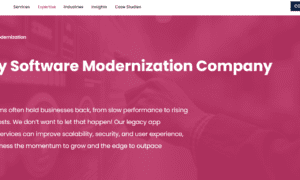Starting a consultancy business can be a rewarding and exciting venture. It also has its own challenges. This blog will provide valuable strategies and tips to help consultants succeed in their career. These tips, which range from building a solid client base to improving communication skills, will help consultants excel in their profession.
1. Finding a niche
Finding a niche is one of the most important factors in the consulting industry. Consultants should concentrate on an industry or field of expertise in which they have unique insight and solutions. This blog will explore the importance of niche specialization, and give guidance on how you can identify and target the correct market.
If you choose the wrong niche, you’ll waste money, time and opportunity. You can base your decision on your previous work, passion or “gut feeling”. Your consulting business will suffer if you are a general consultant. Few clients believe that a “generalist” can solve their problem. You become matte grey and forgettable when you are a “generalist”.
2. Building a strong personal brand
Personal branding is essential for consultants. Personal branding is the process by which you establish your professional identity and values. You can differentiate yourself from your competitors, build trust with clients and create a loyal audience by having a strong personal brand.
It is important for consultants to establish a strong brand in order to be competitive on the market. This section will provide tips and advice on how to create a strong brand identity. Consultants will learn to showcase their expertise by leveraging social media platforms and creating a professional site.
Your personal brand can help you to communicate your values, principles and mission. Your personal brand brings your values and principles to life, and helps you communicate them in such a way that clients will be able to feel.
3. Develop Effective Communication Skills
Consultants must be able to communicate their ideas and thoughts in an easily understood manner when working with clients. They should be able break complex concepts down into simple terms so that their clients can fully understand the implications and benefits.
Consultants must also have excellent interpersonal skills in order to build rapport with clients and establish trust. This means adapting communication styles to individuals and cultures and fostering collaboration and teamwork.
Communication is the core of consulting. This blog will highlight the importance of effective communications skills and give actionable tips to improve them. Consultants will learn to communicate effectively, build rapport with their clients, and achieve exceptional results.
4. Maintaining and Building Relationships
For long-term consulting success, it is crucial to build strong client relationships. This section will examine strategies for building trust, managing client expectations, and meeting clients’ needs. Consultants will learn how to manage client relationships effectively, including through regular communication, providing value-added service, and seeking out feedback for continual improvement.
In consulting, a network of strong professional relationships can be invaluable. This not only allows consultants to stay in touch with the latest industry trends, but it also opens up new opportunities. At networking events and conferences, focus on building connections with clients, experts in the industry, and other consultants. It is important to build a network of support that can provide guidance, mentorship and business leads.
Consultants who want to be successful in their career need to have strong interpersonal skills. This includes developing strong interpersonal skills such as active listening and empathy, as well effective communication. Building rapport with colleagues and clients can lead to repeat business and long-term relationships.
5. Leveraging Technology and Tools
The role of technology in the business world today is crucial. To help businesses leverage technology, consultants must have a solid understanding of IT infrastructures, software solutions and digital tools. Cloud computing, cybersecurity and emerging digital trends are all important.
Consultants often work with IT teams in organizations to implement technology solutions. It is therefore essential to be able to communicate effectively with technical experts, and bridge the gap between technology and business.
Consultants need to use technology and tools in today’s digital world to enhance their productivity and streamline their operations. This blog will showcase various online platforms, software applications, and other tools that can help consultants manage projects, organize data, and collaborate with clients. Consultants will find valuable resources for optimizing their workflow, from project management software to data analytics.
6. Protecting your business
One of the most important ways to become a consultant independent is to ensure the financial and growth strength of your company. There are unique risks and liabilities that come with being a consultant. A freelance consultant who gives professional advice in exchange for fees to a client runs the risk that their services will result in a significant financial loss.
To save money, you can shop for policies that best align with your business requirements. In the US a startup insurtech, BizInsure can help you compare quotes from leading insurers.
7. View previous client-related works
How good is their work? How much of their work is good? Does it affect your reputation? Will it affect your reputation within your company? Will it be difficult to fix?
Many consulting firms maintain “knowledge banks” to store information on past projects, as well as the latest thinking of the firm.
If you are starting a new project, it is a good idea to search the library for relevant information about your client, competitors and functionally similar projects. (For example, if you are working on your first project in cost reduction, you will find a lot of material that will give you an overview of how to run a cost reduction project, including sample analyses, suggested outputs, etc.)
It is important to pay close attention to previous work. This will prevent your team from re-creating it (which happens surprisingly frequently).
The “sales documents”, including the project proposal, preliminary research and the project proposal, should be reviewed.
8. Create a good working relationship with your team
You don’t have to be the smartest person around. It is a known fact that you can communicate better (and solve problems) when you express your opinions and use your voice. Your clients (and colleagues) will be grateful if you set clear expectations and stick to them.
You may be asked by your supervisor to run “errands”. This request must be followed. You should know when to move out of the way.
Introduce yourself to the assistant at the beginning of every engagement. This person is essential to a team that performs well.
They not only coordinate the hectic schedules of everyone involved, but they also help with basic research and proofreading.
You may have frequent interactions with the team as the new consultant. To get things done quickly, it is crucial to earn their respect. Team assistants also have busy schedules. Your requests should be given top priority.
9. Use surveys to support your consulting business
You need to know what your clients are looking for in order to succeed with business consulting. As you ask for feedback, keep in mind that clients can be contacted via many different channels.
Early feedback can help you determine what works and doesn’t for a client. Asking your clients to complete surveys will give you an honest view of their experience with your business.
A client satisfaction survey can be a good way to gather feedback later on in your relationship with the client. You can also ask your clients to complete a brief survey after you have completed the work. You should keep your survey brief. The survey should not take more than five minutes.
Consulting offers professionals a wide range of opportunities to have a positive impact on various industries. Consultants can achieve success by implementing the strategies and tips discussed in this post. Consultants will have the tools to succeed, from identifying a market niche, to developing a personal brand, nurturing client relations, and leveraging technologies.
Read More From Techbullion



































